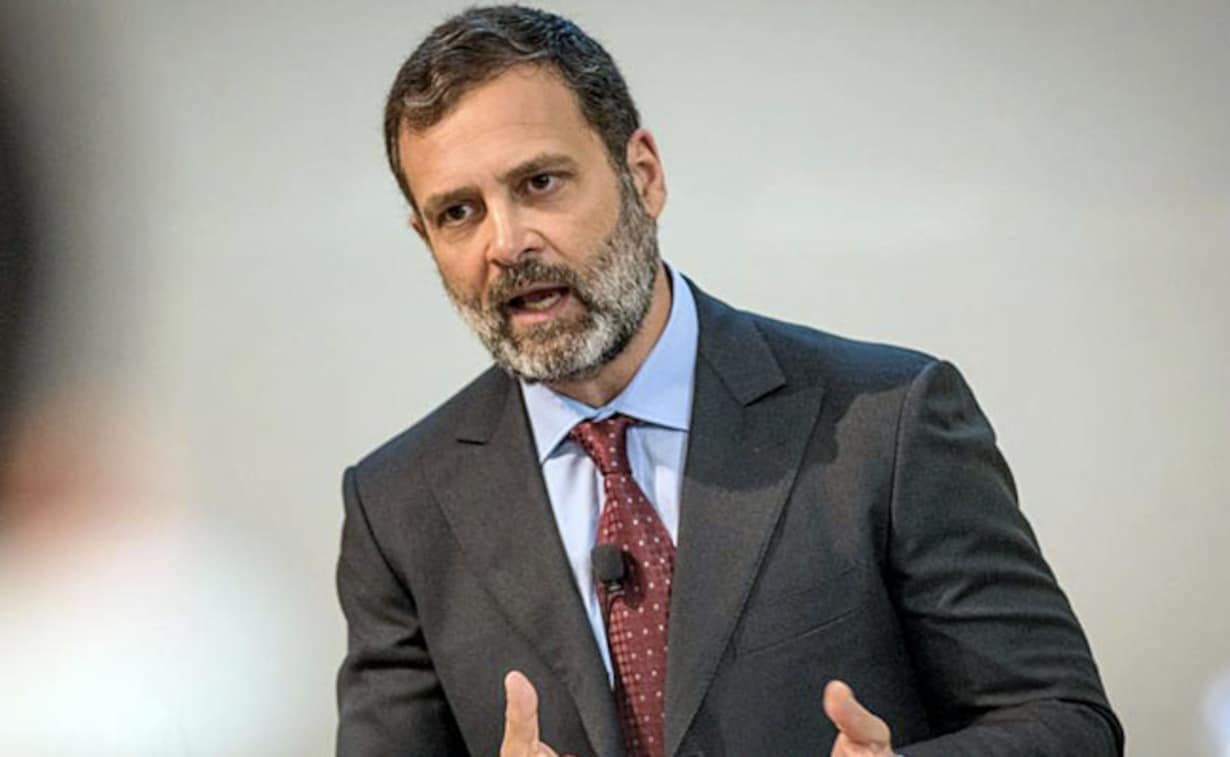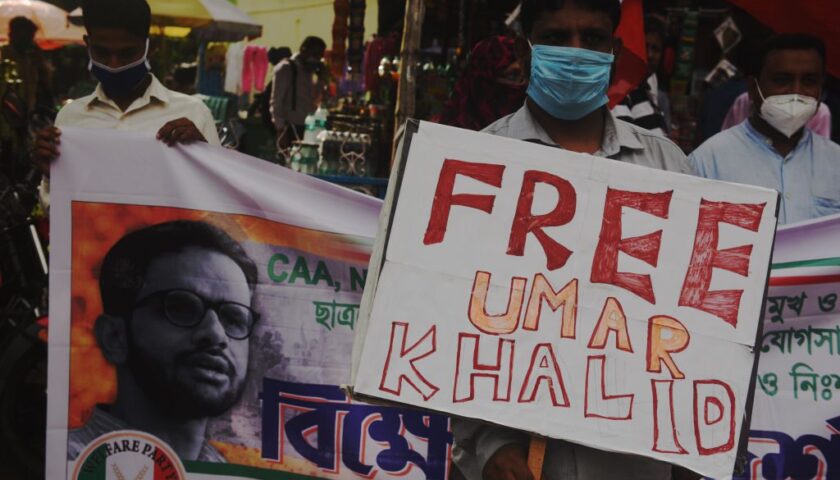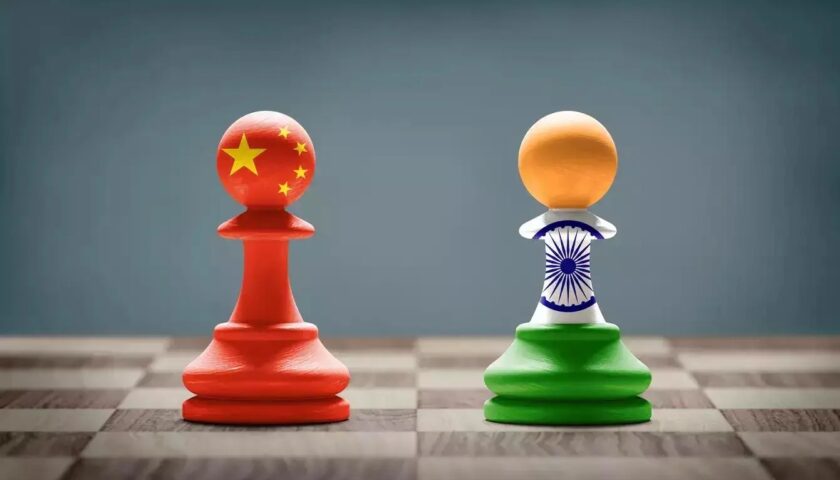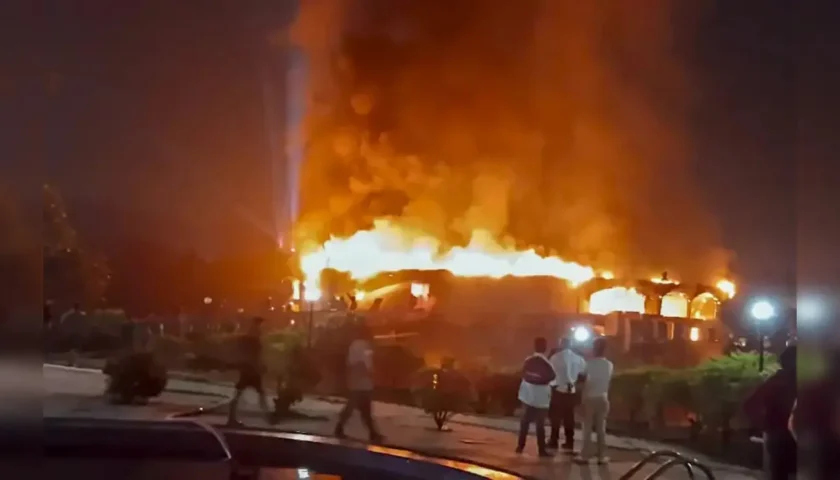Rahul Gandhi’s speech at Cambridge University earlier this week drew the BJP’s ire as it was learnt that the Congress leader spoke of the “threat to democracy” in India and alleged that several politicians, including him, were under surveillance.
Gandhi made the remarks during a lecture at the Cambridge Judge Business School (Cambridge JBS) on “Learning to Listen in the 21st Century”. BJP national spokesperson Jaiveer Shergill tweeted, “Instead of introspecting on loss of 172 seats out of 180 in N East polls, loss of 50+ elections out of 54 under his command, Rahul Gandhi is busy crying wolf on foreign shores! RG Cambridge speech is Classic Case of ‘Naach Na Jaane, Aangan Tedaa’ or ‘Bad Workman blames his tools’.”
Here are the 10 things that Gandhi spoke of:
On democracy in India
“Indian democracy is under pressure, is under attack. I am an Opposition leader in India and we are navigating that space. What is happening is that the institutional framework which is required for a democracy — Parliament, a free press, the judiciary — just the idea of mobilisation, just the idea of moving around … these are all getting constrained. So, we are facing an attack on the basic structure of Indian democracy.”
On federalism
“In the Constitution, India is described as a union of states and that union requires a negotiation, requires a conversation. It is slightly different than other countries. You can think about it much more at the scale of Europe. Multiple different states, much much bigger, requiring a conversation and a negotiation to actually move forward. It is that negotiation that is actually coming under and is under threat.”
Protests stifled
Showing a photograph of the police stopping him and several other party MPs at Vijay Chowk during a protest against Sonia Gandhi’s questioning by the Enforcement Directorate last July, he said, “That picture is taken in front of Parliament House. That is where a whole bunch of Opposition members of Parliament were just standing there talking about certain issues and we were just locked up and put in jail. And that has happened three or four times. And it has happened relatively violently.”
Attack on minorities
“You have also heard of the attack on minorities, the attack on the press. So, you get a sense of what is going on. The one way I would like to think about it is that in India democracy is a public good because it is by far the biggest democracy … so preserving Indian democracy is more than just about India. It is actually about the democratic structure and democratic system on the planet.
Surveillance and attack on institutions
“Capture and control of media and judiciary. Surveillance and intimidation. I myself had Pegasus on my phone. A large number of politicians have Pegasus on their phones. I have been called by Intelligence officers who tell me, ‘Listen, please be careful of what you are saying on the phone because we are sort of recording the stuff.’ This is constant, constant pressure that we feel. Cases of opposition … I have got a number of criminal libel cases for things that should under no circumstances be criminal libel cases. So. that is the story. And that is what we are trying to defend. What we found as the Opposition is that it is very difficult to communicate with people when you have this type of assault on the media, on the democratic architecture.”
Bharat Jodo Yatra experience
“We started getting people who started talking to us about things that we never imagined that they would speak about … Suddenly, we were getting these emotional outbursts of people telling us the most personal things. So, I am walking and suddenly these two girls come, one of them grabs my hand on this side and the other one grabs my hand on the other side. When they grabbed my hand I felt something I have never felt before … I thought this is strange, the way they are holding my hand, there is something strange in it. It is almost like a desperate way of holding my hand. I looked at the girl and said tell me what’s happened, how you are doing? And she looks at me and she says well my sister and me were gang-raped by five guys. This is not a personal conversation that you will have with somebody who you have just met. I said let’s call the cops. That was my first reaction. I am like that’s a real problem, let’s call the cops.
“They were like, ‘Please, don’t call the cops, you can’t call the cops’ … And they are like, ‘If you call the cops we will be shamed.’ And then the girl says, ‘I will never be able to get married.’ So I said, ‘What do you want me to do?’ I said If I don’t call the cops how do I help you. They said, ‘No, we just wanted our brother to know what had happened to us.’ And I said, ‘You have told your brother what has happened to you, now what do I do?’ They said there is nothing you can do and they just walked away. You extrapolate that and then you can see thousands of women who have faced something like that and you can see the pain that is there, hidden, and you can see the difficulty that they are dealing with. I thought, these girls have dealt with this and now they are going to deal with it for the rest of their lives and they are never going to tell anybody. I thought that was crazy.”
In Kashmir
“This is where the thing gets really interesting. So, we are going through all the states and Kashmir is insurgency prone. There is a lot of violence there … As I am entering Kashmir, the security guys come to me and say, ‘Look, you can’t walk in Kashmir. It is not a good idea.’ We are walking for three days, in the roughest districts, they said you can’t walk in Kashmir, it is a bad idea. I said, ‘Why can’t I walk in Kashmir?’ They are like, ‘Well, you will get hand grenades thrown at you.’ Now I am responsible for 120 people I am walking with. I said let me go and have a little word with them. So, I go and have a little word with them. I told them, ‘Look, they are telling us that hand grenades are going to get thrown at us.’ I was like, ‘Frankly I want to walk. If we get hand grenades, we get hand grenades.’ So, they were like, ‘We should all walk.’ So, we decided we are going to walk. And we started to walk and suddenly what starts to happen is that these Indian flags start coming out everywhere. The first day, we were told about 2,000 people were going to show up and 40,000 people showed up. “
Militants looking at me
“So, we have been told we are going to be killed. And we are walking. And people are coming and one guy looks at me and he says, ‘Call me.’ So, I am like, ‘Come’ … And the security people have said, ‘Please don’t do this … please don’t call people, because it is putting everyone at risk.’ So, he comes and he starts walking next to me. So he says, ‘Mr Gandhi, you have come here to listen to us.’ I am like, ‘yes’. He said, ‘That is interesting.’ He is like, ‘You really come here to listen to us.’ I am like, ‘yes’ and he is like good. And then he says, ‘You see those guys over there?’ And we are walking. I ask, ‘Who?’ He says, ‘Those boys over there.’ He is like, ‘They are militants.’ Now militants should normally kill me … In that environment, militants should kill me. He says they are there and they are looking at you. So, I look at them and they are giving me this sort of look and I am like, okay, I am now in trouble because this guy has just told me this … They give me this look and I give them this look back and then we carry on. Nothing happens. Why I am telling you this is because they actually couldn’t do anything. They actually didn’t have the power to do anything even if they wanted to. Because I had come into that environment listening. And I had come into that environment completely with no violence in me at all. And a vast number of people were saying that. That to me was an indicator of listening and non-violence.”
On Narendra Modi’s policies and schemes
“The problem is that if you fundamentally disagree with the foundation of something, I could think about it and say maybe that policy that he has done is not a bad policy, maybe giving ladies gas cylinders and giving people bank accounts is not a bad thing. It is a good thing. But that sort of misses the point. Because in my view Narendra Modi is destroying the architecture of India. So, I am not bothered about two or three good policies that he is doing if he is blowing my country to smithereens or our country to smithereens. I think that is what he is doing. He is imposing an idea on India that India cannot absorb. India, as I said, is a union of states. It is a negotiation and if you try to force one idea on a union, it will react. I have got a Sikh gentleman sitting here. He is from the Sikh religion. We have got Muslims in India, Christians in India, different languages in India …They are all India. Mr Narendra Modi says he is not. Mr Narendra Modi says he is a second-class citizen in India. I don’t agree with him. If your disagreement is so fundamental then really talking about three policies that you agree with, I think misses the point.”
On the rising power of the right-wing in India
When you look at these things seriously, you have to go past the idea of the right-wing and go into what are the forces behind that structure. What is causing that change? Number one, the massive concentration of wealth in a few people’s hands. Number two, complete control of the media as a result of the concentration of wealth and number three the lack of production in India. So, if you have people working in factories, they can organise themselves politically and if you can organise yourself politically you can get a counter force to right-wing mobilisation. The problem is the bulk of India’s people are unorganised labour so it is very difficult for them to organise. They want to organise, and they understand the need to organise but because they completely separate, they can’t. That is really how to think about it.”




